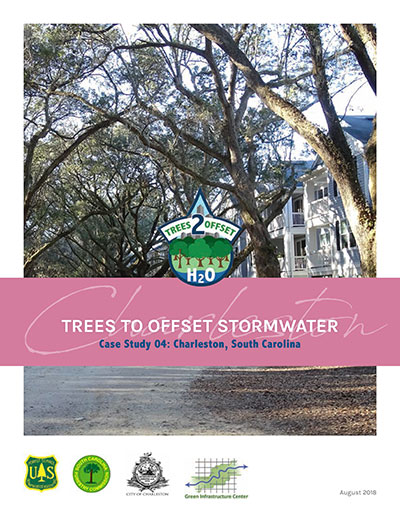Green Infrastructure Center, Inc.
GIC maps natural assets to create green infrastructure plans and green prints.

Charleston Trees to Offset Stormwater
This project, called Trees to Offset Stormwater, is a study of the City of Charleston’s forest canopy and the role that trees play in up taking, storing and releasing water. This study was undertaken to assist the City of Charleston in evaluating how to better integrate trees into their stormwater management programs. More specifically, the study covers the role that trees play in stormwater management and shows ways in which the city can benefit from tree conservation and replanting. It also evaluated ways for the city to improve forest management as the city develops.
This report includes those findings and recommendations that are based on tree canopy cover mapping and analysis, the modeling of stormwater uptake by trees, a review of relevant city codes and ordinances, and citizen input and recommendations for the future of the City of Charleston’s urban forest. More specifically, the following deliverables were included in the pilot study:
• Analysis of the current extent of the urban forest through high resolution tree canopy mapping,
• Possible Planting Area analysis to determine where additional trees could be planted,
• A method to calculate stormwater uptake by the city’s tree canopy,
• A review of existing codes, ordinances, guidance documents, programs and staff capabilities related to trees and stormwater management, and recommendations for improvement,
• Two community forums to provide outreach and education,
• Presentation of the results of the pilot studies as a case study at the National Partners in Community Forestry Conference.
This is one of 12 case study reports produced by GIC for the Trees to Offset Stormwater Project.
You can view the Summary Report here.
Learn more on our Trees and Stormwater project page.
Back to Resources